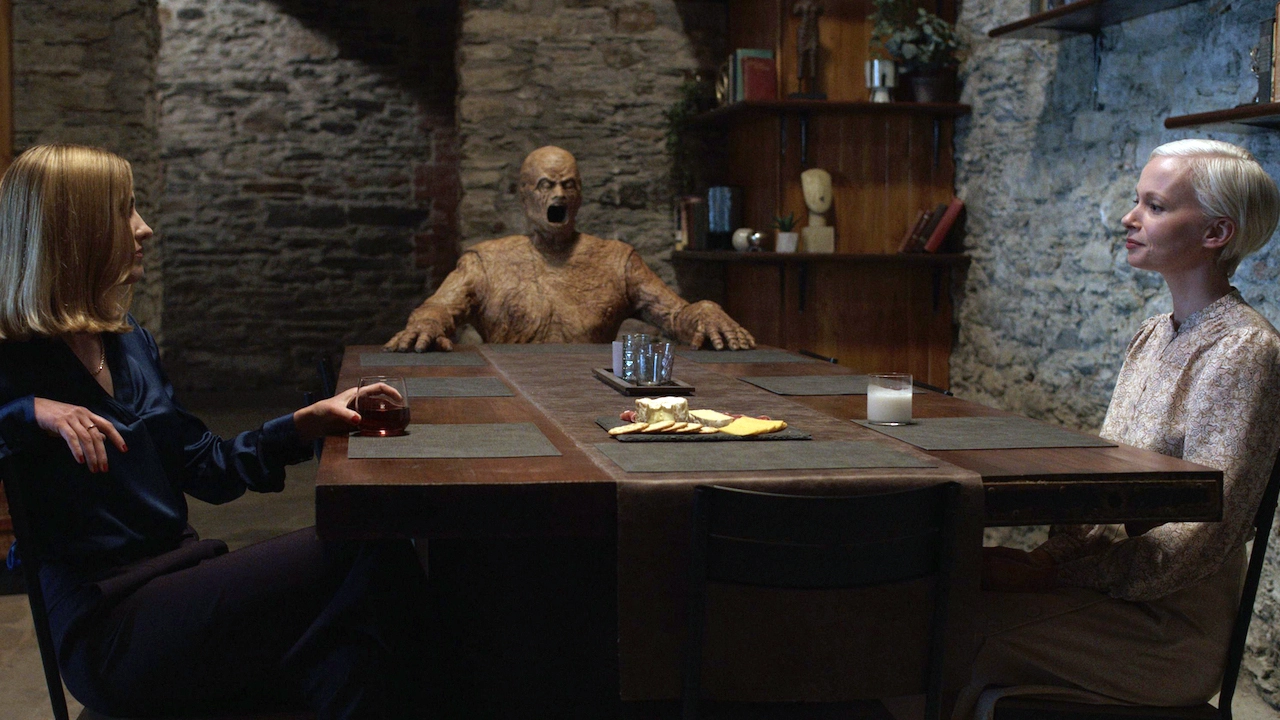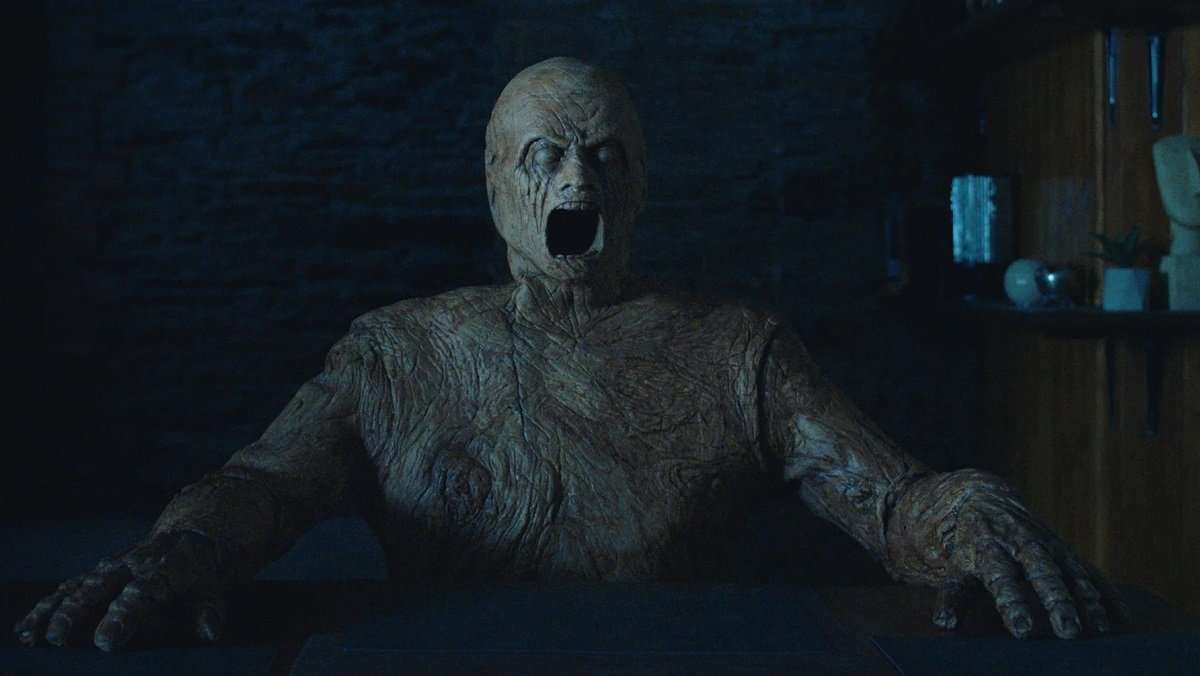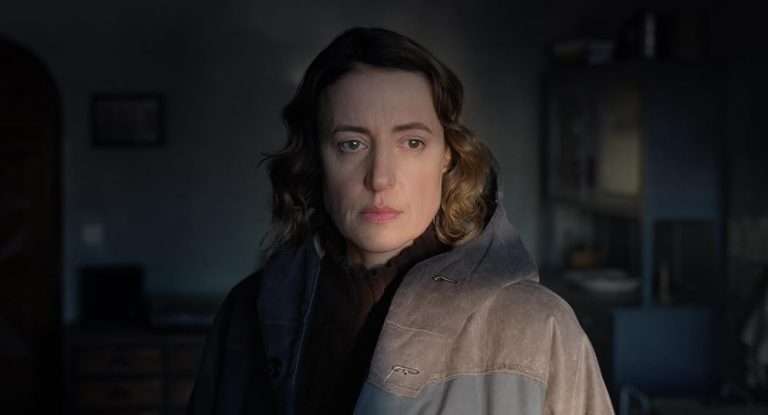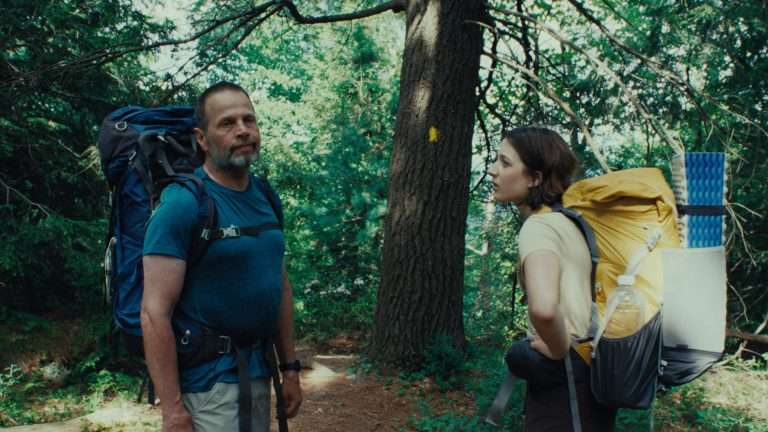Those paying close attention to the status of horror cinema in 2024 (particularly as assessed by yours truly) may have noticed a common trend amongst this year’s meager output. From “Longlegs” to “In a Violent Nature,” from “Cuckoo” to “Humane,” the scares populating this calendar year seem troubled in their commitment to a chosen tone, often flailing about from horror to comedy without the overarching vision to plant these tonal mismatches with any sort of satisfying cohesion. One would think, then, that Damian Mc Carthy’s “Oddity” would follow suit, but here is where the story gets interesting—or at least, as interesting as one of these stories is bound to get.
As might be expected (and hoped) for a film bearing such a title, “Oddity,” from its earliest minutes, leaves viewers in a perpetual daze, constantly asking themselves one simple question: “What the hell?” With each passing act of the film, the intonation of this question shifts, which may very well be Mc Carthy’s aim on paper; in practice, the specific tones may not be entirely what he was going for, as the question of “What the hell?” goes from the point of intrigue to humor, and finally, to outright stupidity.
After the brutal murder of her sister Dani (Carolyn Bracken), her blind twin sister Darcy (also Bracken; yes, this is going to be one of those films) aims to use her skills as a medium to help alleviate her grief. In doing so, she ventures out to Dani’s now-finished country house—the scene of the crime—forcing herself into the company of her former brother-in-law Ted (Gwilym Lee), a psychiatric doctor working in a mental institution, and his new girlfriend Yana (Caroline Menton). Blind to the world but tapped into the spirit plane—because that’s what brain tumors do, right?—Darcy’s only tools to help her unpack her grief are her supernatural skills and a strange, life-sized wooden mannequin.

This premise may strike you in one of two ways: you may find yourself either elated by the use and reappropriation of common horror tropes into a new mold or immediately bored by the return of countless horror clichés. The thing is, Mc Carthy is well aware of both possibilities, and with “Oddity,” his own balance of comedic skewering and horror reverence—just about the only director this year not named Coralie Fargeat to come even close to nailing it—should keep you at least mildly entertained no matter which side you find yourself on; even if you hate the tropes, at least the undercurrent of consistent comedy may help numb the pain.
This approach does eventually begin to lose some steam, as the humor in “Oddity” becomes largely dependent on leaning aggressively into one of the most irksome of these classic horror tropes: the obtuseness of its characters. For a film set partially in an asylum, perhaps this is Mc Carthy’s sly commentary on how the outside world can be just as oblivious to reality as those we’re so willing to lock away, but the lengths to which you’re forced to stretch in order to buy into this level of inane behavior from everyone onscreen will likely result in a dislocated shoulder or two.
As these blatant idiots make their way through Mc Carthy’s decently composed shots—Colm Hogan’s stiff cinematography makes solid use of what little we see from the cold emptiness of the stone-walled house—”Oddity” flexes its adherence to simplistic horror devices even further through its perpetual reliance on everyone’s favorite tool: the jump-scare. Normally, this would be a point for full-on dismissal, as the laziness of the horror fakeout has long since outworn its welcome.

To Mc Carthy’s credit, however, the jump-scares in “Oddity” manage to demonstrate at least some level of compositional forethought and gleeful creativity. Regardless, once you’ve attuned yourself to the clues of any impending fakeout, it becomes difficult to enjoy these experiences in any capacity other than from a(n almost) respectful distance.
If this overtly asinine disposition could be excused as a playful stab at the foundational elements of horror cinema, then the equal (if not greater) stupidity of the film’s final act may test the limits of what you’re willing to embrace from “Oddity.” By the time Damian Mc Carthy unravels the motivations that have driven this calculated horror-comedy, the realization that you might not even care about what and who has brought you there will weigh on your experience more than any sense of grief or justice. The micro-satisfactions of disparate chuckles and music-induced startles can only take you so far when the final destination is just as barren as the film’s woodside estate and just as hollow as the head of its most discomforting wooden occupant.





![Anna [2019] Short Film Review: An Impressive Portrait dealt with Precision](https://79468c92.delivery.rocketcdn.me/wp-content/uploads/2020/06/Anna-2019-short-films-highonfilms-768x321.jpeg)

![Scream [2022] Review: For Fans of Originals Who Dream of Sequels in the Same Vein](https://79468c92.delivery.rocketcdn.me/wp-content/uploads/2022/03/Scream-2022-768x432.webp)
![Dragged Across Concrete Review [2019]- Taste the Pavement](https://79468c92.delivery.rocketcdn.me/wp-content/uploads/2019/04/DAC_D27_04417-768x502.jpg)